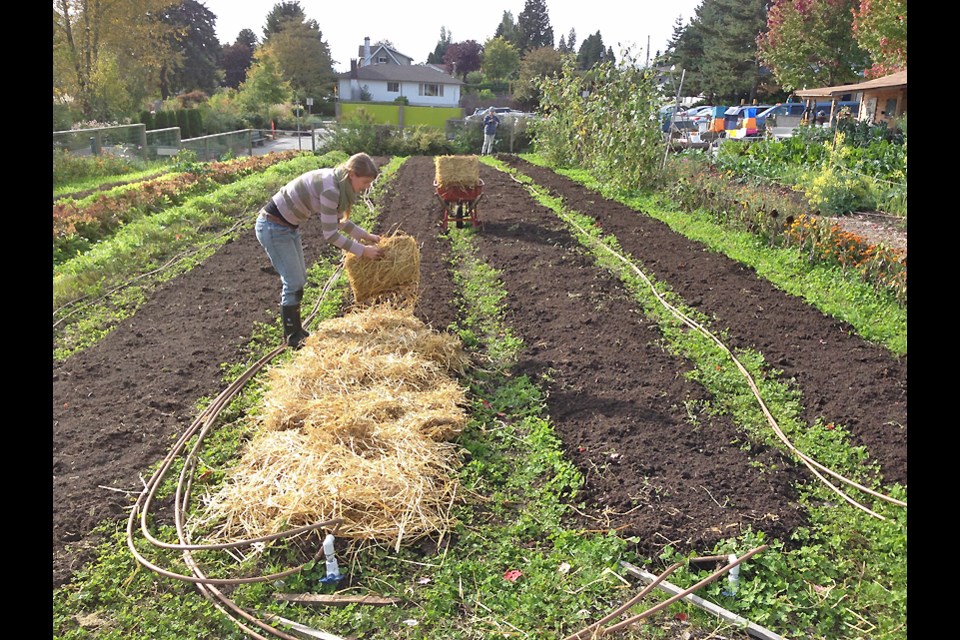I’m sure you’ve all been out diligently collecting leaves, but I’ll still remind you that now is the time!
Collect them from your property, ask your neighbours to share theirs, and if you’re lucky you’ll catch the staff cleaning up leaves in your local park and they may share some with you.
Mulch lies heavily around any winter crops like kale, and on any exposed soil. The leaves act as a big fluffy blanket that insulates the soil, prevents erosion, and promotes great macro and microbiological activity to make your soil healthier.
There are a number of horse stables across the North Shore, and many of them are happy to have folks come by and pick up manure for their gardens. Just give them a call to make sure it is OK and pick a good time for your arrival.
When I lived in North Vancouver I would put a tarp in the back of my hatchback, grab some five-gallon pails and a shovel and head on to collect manure.
The pails and tarp made the job relatively easy to clean from the car, and at least I didn’t have to walk with a wheelbarrow across town.
Spreading an even layer of manure across your garden in the fall provides enough time for the manure to break down to release nutrients as well as reduce the likelihood of transferring hazardous pathogens to your garden veggies.
Adding fresh manure to your garden in the spring is not a good idea.
I used to make sure I cleaned up all the dried stalks and broken branches in the garden every fall, but local beekeepers have taught me not to.
These provide valuable overwintering habitat for a myriad of native pollinators, so try not to go overboard with your fall cleanup.
For example, I used to pull out all of the old raspberry canes in the fall, but now I leave most of them in.
These canes are sort of hollow and pithy. They make a perfect winter home for carpenter bees and leafcutter bees – both are very important pollinators.
If you really must take out old raspberry canes, consider stacking the old canes (and other garden debris) in a quiet corner of your yard. The bees may still find a home there over winter.
If you want to learn more about native bees check out Bee Friendly (beefriendly.ca), a North Shore organization dedicated to native bee conservation.
If you never got a chance to plant your winter garden or it doesn’t produce enough for you, there are some great options for accessing fresh local produce.
Farm Folk City Folk (farmfolkcityfolk.ca) has a directory of farms offering weekly boxes of vegetables (often called Community Shared Agriculture or CSA). Abbotsford’s Crisp Organics offers a winter CSA (crisporganics.com) from November to April with four pickup locations on the North Shore.
The Saturday Winter Market at Nat Bailey Stadium in Vancouver is always a lively place to visit for your winter veggies.
You may be amazed by the diversity of produce available in the autumn and winter season at the winter farmers market.
This year was a particularly great apple season – so if you’re not picking from your own trees head on down to the market and buy some beauties straight from the farmer.
Happy gardening!



